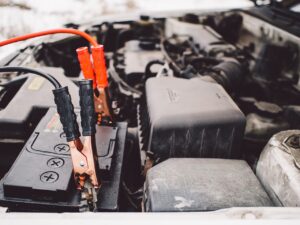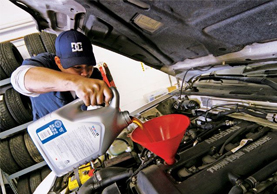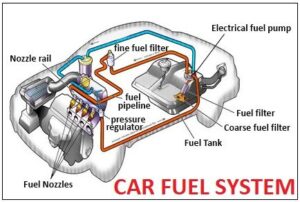Should You Replace Ignition Coils with Spark Plugs? By Nelson Auto Repair, Naperville’s Premier Auto Repair Company
Your vehicle’s performance depends largely on the health of its ignition system. At the heart of this system are the spark plugs and ignition coils, which work hand-in-hand to ensure smooth engine operation. A common question many car owners have is whether they should replace ignition coils when they replace spark plugs. As Naperville’s top-rated and fully insured auto repair service with over a decade of experience, Nelson Auto Repair is here to shed light on this subject.
1. Understanding the Role of Spark Plugs and Ignition Coils
Before diving into the main question, it’s essential to understand the fundamental roles these components play:
- Spark Plugs: These are responsible for igniting the air-fuel mixture in the combustion chamber. Over time, spark plugs wear out due to the extreme conditions they operate under.
- Ignition Coils: These convert the car’s low-voltage power to the high voltage needed to produce the spark for ignition. Like all components, they also have a lifespan and can fail over time.
2. Signs of Failing Spark Plugs and Ignition Coils
Detecting issues early can save you from potential breakdowns. Here are signs to watch out for:
- Reduced Fuel Efficiency: Worn-out spark plugs or faulty ignition coils can lead to unburned fuel, impacting your mileage.
- Engine Misfires: If your engine occasionally stutters or hesitates, it could be a sign of a failing spark plug or ignition coil.
- Rough Idle: A rough, vibrating idle can indicate a problem within the ignition system.
- Difficulty Starting: Struggling to start your vehicle? It might be time to inspect these components.
3. Should You Replace Both Simultaneously?
It’s not a strict requirement to replace ignition coils and spark plugs simultaneously, but it can be a smart move for a few reasons:
- Saving on Labor: If one component is already being replaced, accessing the other isn’t much extra work. This can save on labor costs in the long run.
- Ensuring Consistent Performance: New spark plugs combined with aging ignition coils (or vice-versa) might not deliver optimal performance. Replacing both ensures that the ignition system operates harmoniously.
- Preventive Maintenance: If one component is showing signs of wear, the other might not be far behind. Addressing both simultaneously can offer peace of mind and prevent future breakdowns.
4. Making the Right Decision for Your Vehicle
Every vehicle and situation is unique. Here are some considerations to guide your decision:
- Age and Mileage: If both the spark plugs and ignition coils are nearing the end of their recommended lifespan, it makes sense to replace them together.
- Budget: While replacing both might be ideal, it’s essential to prioritize if you’re on a tight budget.
- Vehicle’s History: If you’ve recently replaced one component, it might not be necessary to replace the other immediately.
Final Thoughts from Nelson Auto Repair:
- Consult with Professionals: Always consult with experienced professionals, like our 5-star team at Nelson Auto Repair, before making decisions.
- Regular Inspections: Regularly inspecting your ignition system can help you catch and address issues early.
- Quality First: If you decide to replace, always opt for high-quality parts. It’s an investment in the longevity and performance of your vehicle.
In conclusion, while it’s not mandatory to replace ignition coils with spark plugs, doing so can ensure optimal performance and save potential costs in the future. Trust the experts at Nelson Auto Repair, Naperville’s #1 auto repair company, to guide you in making the best decisions for your vehicle.






